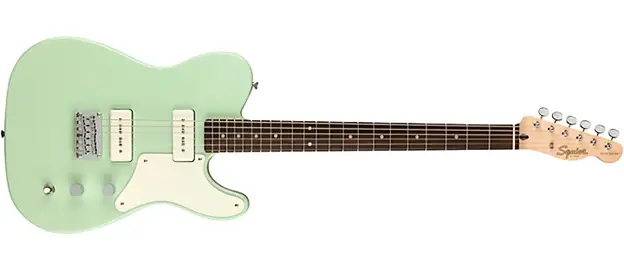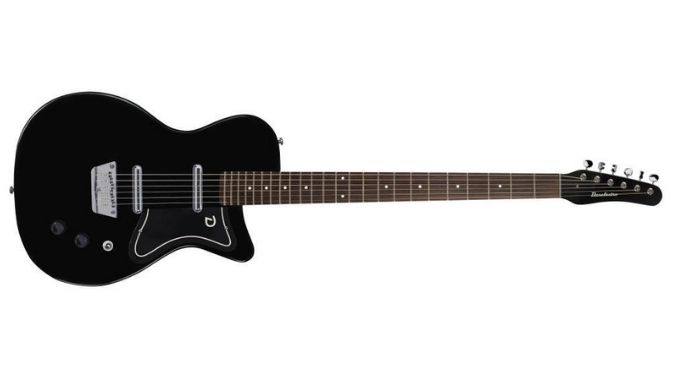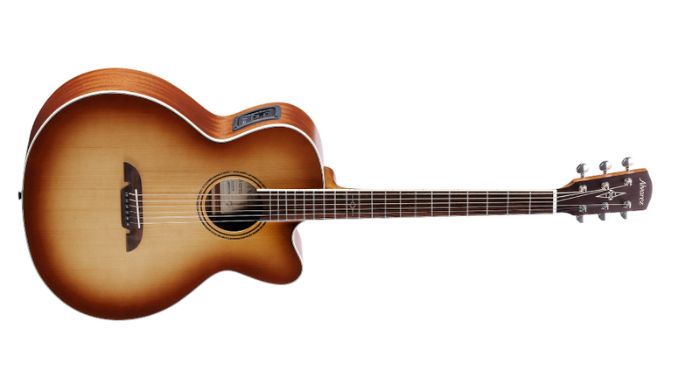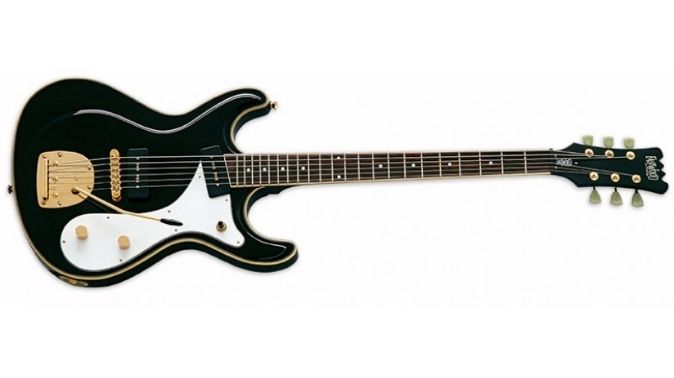Devotees to the cult of the Fender Telecaster tend to be loyal and zealous. The same can be said of baritone guitar players. Many consider themselves ambassadors of the deep-tuned bari guitar.
So, what happens when you make a baritone Telecaster? Does the result inspire devotion, disappointment, or something in between? In this article, we will take a look at the Fender Blacktop Baritone Telecaster and find out if this Tele baritone combo lives up to its potential.
We’ll also ask if this baritone Tele is worth the $850+ price it’s currently fetching on the used market and then conclude with three factors that should help you decide whether this instrument is worthy of your hard-earned cash!

The Blacktop Baritone Story
Fender introduced the Blacktop Baritone Telecaster in 2012, built in Mexico. The extended range Tele was part of a larger Blacktop series of guitars designed to offer unique sonic variations on classic designs. Most often, this meant offering unique pickup combinations. In the case of the Blacktop Baritone Telecaster, sonic diversity took the form of extending the neck scale and turning a classic Tele body into a B-to-B tuned low-end axe.
Key Features & Specs
- Alder body
- Maple neck
- Scale length: 27”
- Neck Width at Nut: 1.650”
- Rosewood fretboard, 22 medium jumbo frets
- Single-coil Telecaster neck and middle pickups
- Humbucking bridge pickup
- Finish options: classic copper, ghost silver, and three-color sunburst.
- Made in Mexico

Build Quality
If you do a Google search for ‘Fender Blacktop Baritone Telecaster reviews’ you’ll find a mix of devoted fans along with pointed critiques of the guitar’s quality. The devoted fans love the mix of modern and classic tones delivered by the Blacktop’s complement of pickups. Others love the guitar’s sharp looks and classic Tele aesthetic – and for good reason. The Blacktop Baritone Telecaster is a great-looking guitar (in my opinion, the “ghost silver” and “classic copper” finishes are particularly sharp).
At the same time, some have reported quality issues in tone pots and pickup selectors. Others have reported “creaking” sounds during tuning – a potential indicator of poor quality in tuning pegs or less-than-exceptional work in the nut, string tie, or bridge.
All these reports came from folks who purchased the Blacktop Baritone Telecaster when the model was new and still in production. The Blacktop Baritone was listed for around $600 in 2012. At that price point, these quality concerns shouldn’t have been too much of an issue, but naturally, one has to wonder how the Blacktop Baritone has aged over the years.
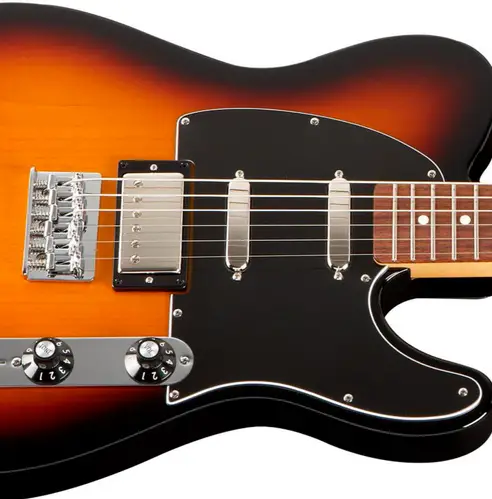
Tone: A Little Bit of Tele… A Whole Lot of Baritone
The neck and middle single-coil pickups deliver a classic Fender tone. It’s not exactly a classic Tele sound. This is most likely the result of body materials and scale length – both of which impact an electric guitar’s tone. Instead, the Blacktop Baritone ends up dishing a detuned Tele-Strat hybrid sound.
The bridge position humbucker might leave some Tele purists disappointed. It’s meatier and warmer than what you’d expect from a telecaster. Distorted, it dishes out chunky tones. If a gritty over-driving rock sound is your jam, the Blacktop Baritone’s bridge humbucker won’t disappoint.
Of all the demos and samples I’ve heard from the Fender Blacktop Baritone Telecaster, the best tones seem to come from the neck and middle single coils – especially with just a hint of overdrive. In this almost clean tonal state, the Blacktop Baritone shines, offering a beautiful mix of clean sparkle with a hint of creamy overdrive.
Check out the following video for some great examples of the Blacktops tonal offerings.
3 Things to Know About the Fender Blacktop Baritone Telecaster
Today, a used Blacktop Baritone Telecaster will set you back around $1000. I think the decision to shell out that sort of cash comes down to three key points…
- The Blacktop Baritone produces some great tones
- The Blacktop has a great Telecaster vibe and looks sharp
- However, you may have to deal with some minor quality of build concerns
All things considered, I think you can do better for your money.
If you’re a fan of Fender products, consider picking up a Squire Vintage Modified Jazzmaster. It features great quality and great playability. And, at $449, it’s hard to beat. In fact, we named it the best baritone guitar for around $500. And the Eastwood Sidejack Baritone represents a quirkier (but still great) option for a similar price.
If you have closer to $800 to spend, check out our review of the Ibanez RGB6 Baritone. It might be the most playable baritone you will get your hands on – especially if you love highly technical styles.
Thanks for reading this article, we hope you enjoyed it! To explore more baritone guitar reviews, please see our electric baritone reviews and our acoustic baritone reviews.

